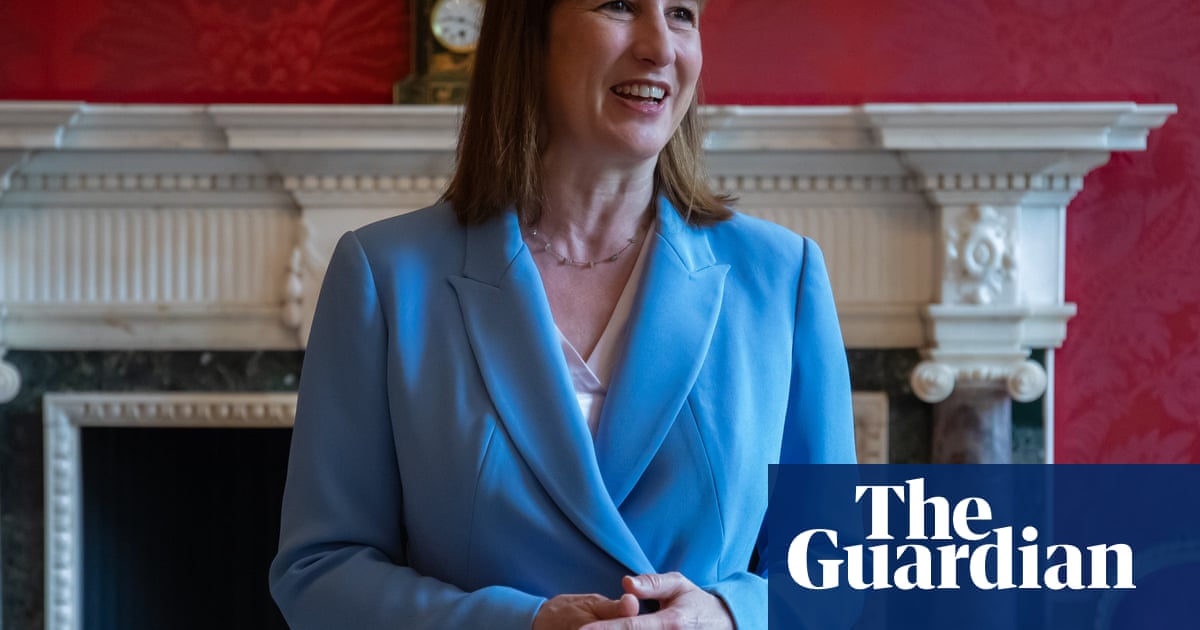The Treasury is in a standoff with some ministers over proposed cuts to public services including policing and social housing, as the International Monetary Fund suggested the chancellor,Rachel Reeves, could give herself more flexibility to hit her fiscal rules.
Senior police figures have raised concerns about the upcoming spending review with ministers, the Guardian understands. Chief officers from some of England and Wales’ biggest forces argue they cannot take further budget cuts.
Several key departments are yet to agree their budgets with the Treasury, including the Home Office, the Department for Environment, Food and Rural Affairs, the Department for Energy Security and Net Zero and the Ministry of Housing, Communities and Local Government.
The IMFsuggested on Thursday that Reeves could refine her fiscal framework, potentially giving the chancellor some political cover to ease her spending cuts in response to changes in growth forecasts.
It said the current system, inherited from the previous Conservative government, of twice-yearly assessments of the public finances by theOffice for Budget Responsibility(OBR) was ripe for an overhaul. It said the chancellor should examine ways to avoid having to make short-term savings when there is a downturn in economic forecasts.
But government sources said there were definitively no plans to change the government’s “ironclad” fiscal rules, pointing to the already high borrowing figures. One source said there were clear costs to any further changes to the rules, shown by the market’s reaction to changes to the borrowing rules at the last budget.
Reeves has tweaked the rules already to allow more borrowing for capital investment –expected to equal £113bn. “When people say: why don’t you just change fiscal rules? Well, we did. We did make a choice to change fiscal rules, and that’s £113bn that wasn’t there,” the source said.
There were currently “no plans” to change the number of forecasts by the OBR, though the prime minister is said to favour making the change.
Starmer is one of several key figures in No 10 who would like to see forecasts reduced to once a year, as the IMF recommended – which would allow Reeves to meet her commitment of just one fiscal event a year.
The OBR’s downgrading of growth forecasts, which wiped out Reeves’s headroom in the spring, meant the chancellor had tomake several cutsat the spring statement, including on welfare.
Health and defence are expected to be the major winners when the spending review is published on 11 June, though there will be significant funding for energy infrastructure, including nuclear.
Home Office sources say real-terms cuts to the department’s budget will make it nearly impossible to meet key pledges on increasing neighbourhood policing and halving violence against women and girls.
The Home Office has been told that the Metropolitan police, the UK’s biggest police force, is already facing a £260m shortfall and having to cut 1,700 officers, community support officers and support staff.
“Police forces are facing budget cuts already. To add to this will mean halting any progress made on some of the government’s key policies, including halving knife crime and halving violence against women and girls,” a police source said. “There has been some good progress on [violence against women and girls]. But, realistically, more deep cuts would put that progress in jeopardy.”
Concern has been compounded by plans by the Ministry of Justice toshorten the sentences of violent offendersin an effort to free up prison places, though there will be more cash for probation services.
Sign up toFirst Edition
Our morning email breaks down the key stories of the day, telling you what’s happening and why it matters
after newsletter promotion
There are also clashes between the Reeves and the housing secretary, Angela Rayner, over funding for social housing. Reeves has previously said housing will be one of the key beneficiaries of the £113bn in capital spending, which the government will begin to set out at the spending review, but did not specify social homes.
The Treasury hasput £2bn into affordable housingto bridge the gap between a new programme set to be announced at the spending review and the current affordable homes spending, which is due to expire in 2026.
At the time the funding was announced, the £2bn was described as a “downpayment” on further funding to be announced at the spending review, which Reeves said would mark a generational shift in the building of council homes.
However, Rayner is understood to be dissatisfied with the level of funding for the next phase of the programme.
The energy secretary, Ed Miliband, is also understood to be still fighting to keep cash for a major programme of insulation, which was a key part of the government’s net zero strategy, though his department is expected to get significant capital investment in energy infrastructure including nuclear.
Labour had previously doubled the previous government’s warm homes scheme from £6bn to £13.2bn over this parliament. But sources say this is likely to be cut in the spending review. At the October budget, Reeves announced £3.4bn over three years for household energy efficiency schemes, heat decarbonisation and fuel poverty schemes.
The government responded to concerns expressed at the time calling the sum the “bare minimum” and promising a spending uplift at the review that now looks to have been cancelled.
Charities have warned this will make it much harder to hit the UK’s climate targets. Lily-Rose Ellis, a campaigner at Greenpeace UK, said:“Cutting policies like home insulation, which provide solutions to lower people’s bills for good, would be an absolutely terrible decision.”
